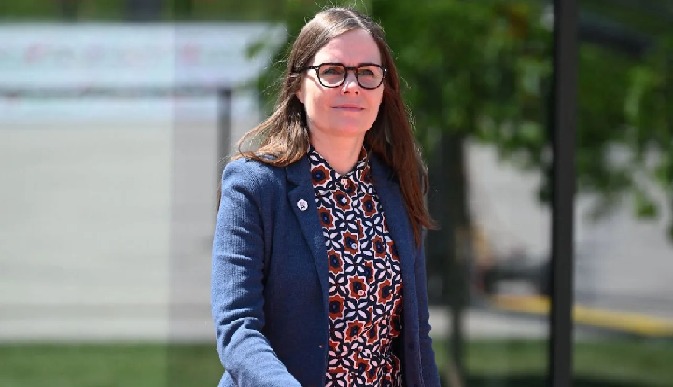In a powerful display of unity and determination, Iceland brought the nation to a standstill, in a womens’ historic strike calling for an end to gender-based discrimination and inequality. The event, which has been compared to the iconic womens’ strike of 1975, saw public transport delays, understaffed hospitals, and an array of untidy hotel rooms as women from all walks of life refused to participate in unpaid and underappreciated work.
The strike was organized and supported by trade unions and central organizers who called upon women to boycott unpaid and underpaid work. Remarkably, nearly 90 percent of the country’s workers, both men and women, belong to a union, underscoring the widespread support for this movement.
Prime Minister Joins the Strike
In a striking show of solidarity, Prime Minister Katrin Jakobsdóttir, a champion of gender equality, publicly announced her participation in the strike. She also expressed her expectation that other female members of her cabinet would follow suit. The Icelandic government has made gender equality a top priority, and this action further emphasizes their commitment to closing the gender pay gap and addressing issues like violence based on caste.
The Prime Minister also said in an interview that we have not yet reached our goals of complete gender equality and we are still dealing with the gender-based wage gap, which is unacceptable. We are still dealing with caste-based violence, which has been a priority of my government to tackle.
Reminiscence of 1975 women’s strike
The women’s strike on October 24, 2023, evoked memories of a similar, watershed moment in Icelandic history. In 1975, Icelandic women took to the streets to demand equal rights regardless of sex. Their unwavering efforts led to the passage of a law guaranteeing these rights. Since then, Iceland has seen several partial-day strikes, culminating in the massive event this week. The strike of 2018, with women leaving work early in the afternoon, was another step in this ongoing journey toward equality.
The impact of Iceland’s strike in 1975 was felt far beyond its borders. The movement inspired similar demonstrations in other countries, including Poland. Women in Spain, for example, staged a 24-hour strike on March 8, 2018, and declared, “If we stop, the world will stop.”
In 1976, Iceland passed a law guaranteeing equal rights regardless of sex. Since then there have been several partial day strikes. The recent strike in 2018 with women leaving work in the early afternoon is also a continuation of these partial strikes.
Iceland, the most gender equal country
Iceland, known for its rugged landscapes and a population of approximately 3.8 million people, has held the distinction of being the world’s most gender-equal country for 14 consecutive years, according to the World Economic Forum. However, it is vital to recognize that complete gender equality remains an elusive goal, even in Iceland. Gender pay gaps persist, and Tuesday’s women’s strike is a potent reminder that there is still work to be done.
Iceland’s commitment to gender equality is also evident in its political landscape, with the cabinet of Prime Minister Katrin Jakobsdóttir being evenly divided between male and female ministers. Nearly half of the lawmakers in the Icelandic Parliament are women, reflecting the nation’s dedication to breaking down gender barriers.
While Iceland has made remarkable progress, the strike and the Prime Minister’s remarks serve as a poignant reminder that the journey toward gender equality is far from over. The gender-based wage gap and caste-based violence remain persistent issues that demand urgent attention.
In a world where progress is often measured in small but significant steps, Iceland’s latest strike stands as a resounding declaration that the quest for gender equality continues. And, as the women of Iceland have shown, when they unite, they can make the world stand still.

